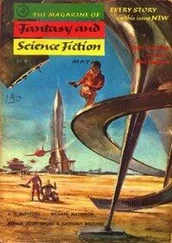Poul Anderson - There Will Be Time
Здесь есть возможность читать онлайн «Poul Anderson - There Will Be Time» весь текст электронной книги совершенно бесплатно (целиком полную версию без сокращений). В некоторых случаях можно слушать аудио, скачать через торрент в формате fb2 и присутствует краткое содержание. Год выпуска: 1972, Издательство: Doubleday, Жанр: Фантастика и фэнтези, на английском языке. Описание произведения, (предисловие) а так же отзывы посетителей доступны на портале библиотеки ЛибКат.
- Название:There Will Be Time
- Автор:
- Издательство:Doubleday
- Жанр:
- Год:1972
- ISBN:нет данных
- Рейтинг книги:5 / 5. Голосов: 1
-
Избранное:Добавить в избранное
- Отзывы:
-
Ваша оценка:
- 100
- 1
- 2
- 3
- 4
- 5
There Will Be Time: краткое содержание, описание и аннотация
Предлагаем к чтению аннотацию, описание, краткое содержание или предисловие (зависит от того, что написал сам автор книги «There Will Be Time»). Если вы не нашли необходимую информацию о книге — напишите в комментариях, мы постараемся отыскать её.
Nominated for Hugo Award for Best Novel in 1973.
There Will Be Time — читать онлайн бесплатно полную книгу (весь текст) целиком
Ниже представлен текст книги, разбитый по страницам. Система сохранения места последней прочитанной страницы, позволяет с удобством читать онлайн бесплатно книгу «There Will Be Time», без необходимости каждый раз заново искать на чём Вы остановились. Поставьте закладку, и сможете в любой момент перейти на страницу, на которой закончили чтение.
Интервал:
Закладка:
“I’ve done a little quiet sounding out, at places like Holberg College and Berkeley. There are good, responsible scholars at Berkeley! I can name you men and women who’ll accept the fact of what you are, and respect your confidence, and help you, same as me.”
“For why?” Leonce wondered.
Havig sprang from his chair and stormed back and forth across the room as he gave her the blazing answer which had broken upon him: “To open the world, darlya! Our kind can’t be born only in the West. That doesn’t make sense. China, Japan, India, Africa, America before the white man came — we’ve got the whole of humanity to draw on! And we” — he stuttered in his eagerness—”we can leave the bad, take the good, find the young and, dammit, bring them up right. My God! Who cares about a wretched gang of bullies uptime? We can make the future!”
It was not that simple, of course. In fact, they spent more than ten years of their lifespans in preparing. True, these included their private concerns. When I saw them next (after his one telephone call), briefly in March, they behaved toward each other like any happily long-married couple. Nonetheless, that was a strenuous, perilous decade.
Even more was it a period which demanded the hardest thought and the subtlest realism. The gathering of Havig’s host would have used every year that remained in his body, and still been incomplete, had he not gone about it along the lines I suggested. Through me he met those members of think tanks and faculties I had bespoken. After he convinced them, they in turn introduced him to chosen colleagues, until he had an exceedingly high-powered advisory team. (Several have later quit their careers, to go into different work or retirement. It puzzles their associates.) At intervals I heard about their progress. The methods they developed for making contact — through much of the history of much of the world — would fill a book. Most failed; but enough succeeded.
For example, a searcher looked around, inquired discreetly around, after people who seemed to have whatever kind of unusualness was logical for a traveler residing in the given milieu. A shaman, village witch, local monk with a record of helping those who appealed to him or her by especially practical miracles. A peasant who flourished because somehow he never planted or harvested so as to get caught by bad weather. A merchant who made correspondingly lucky investments in ships, when storms and pirates caused heavy attrition. A warrior who was an uncatchable spy or scout. A boy who was said to counsel his father. Once in a while, persons like these would turn out to be the real thing … Then there were ways of attracting their heed, such as being a wandering fortuneteller of a peculiar sort …
To the greatest extent possible, the earliest traveler recruits were trained into a cadre of recruiters, who wasted no energy in being uptime overlords. Thus the finding of folk could snowball. Here, too, methods were available beyond the purview of a nineteenth-century American who regarded the twentieth as decadent and every other culture as inferior. There are modern ways to get a new language into a mind fast. There are ancient ways, which the West has neglected, for developing body and senses. Under the lash of wars, revolutions, invasions, and occupations, we have learned how to form, discipline, protect, and use a band of brothers — systematically.
Above everything else, perhaps, was today’s concept of working together. I don’t mean its totalitarian version, for which Jack Havig had total loathing, or that “togetherness,” be it in a corporation or a commune, which he despised. I mean an enlightened pragmatism that rejects self-appointed aristocrats, does not believe received doctrine is necessarily true, stands ready to hear and weigh what anyone has to offer, and maintains well-developed channels to carry all ideas to the leadership and back again.
Our age will go down in fire. But it will leave gifts for which a later mankind will be grateful.
Now finding time travelers was a barebones beginning. They had to be organized. How? Why should they want to leave home, accept restrictions, put their lives on the line? What would keep them when they grew tired or bored or fearful or lonesome for remembered loves?
The hope of fellowship with their own kind would draw many, of course. Havig could gain by that, as Walls had done. It was insufficient, though. Wallis had a variety of further appeals. Given the resources of his group, a man saw the world brought in reach and hardly a limit put on atavistic forms of self-indulgence. To the intelligent, Wallis offered power, grandeur, a chance — a duty, if you let yourself be convinced, which is gruesomely easy to do — to become part of destiny.
Then there were those who wanted to learn, or be at the highest moments of mankind’s achievement, or simply and honorably enjoy adventuring. To them Havig could promise a better deal.
But this would still not give motive to wage war on the Eyrie. Monstrous it might be, the average traveler would concede; yet most governments, most institutions have in their own ways been monstrous. What threat was the Sachem?
“Setting up indoctrination courses—” Havig sighed to me. “A nasty word, that, isn’t it? Suggests browbeating and incessant propaganda. But honest, we just want to explain. We try to make the facts clear, so our recruits can see for themselves how the Eyrie is by its nature unable to leave them be. It’s not easy. You got any ideas on how to show a samurai of the Kamakura Period that the will of anybody to rule the world, anybody whatsoever, is a direct menace to him? I’m here mainly to see what my anthropologists and semanticists have come up with. Meanwhile, well, okay, we’ve got other pitches too, like primitive loyalty to chief and comrades, or the fun of a good scrap, or … well, yes, the chance to get rich, in permissible ways. And, for the few, a particular dream—”
At that, I envied him the challenge of his task. Imagine: finding, and afterward forging mutuality between a Confucian teacher, a boomerang-wielding kangaroo hunter, a Polish schoolboy, a medieval Mesopotamian peasant, a West African ironsmith, a Mexican vaquero, an Eskimo girl … The very effort to assemble that kaleidoscope may have been his greatest strength. Such people did not need to learn much about the Eyrie before they realized that, for most of them as time travelers, Havig’s was the only game in town.
They got this preliminary training in scattered places and eras. Afterward they were screened for trustworthiness; the means were a weird and wonderful potpourri. The dubious cases — a minor percentage — were brought to their home locations, guided to their home years, paid off, and bidden farewell. They had not received enough information about the enemy to contact it; generally they lived thousands of miles away.
The majority were led to the main base, for further training and for the work of building it and its strength.
This was near where the Eyrie would be, but immensely far downtime, in the middle Pleistocene. That precaution created problems of its own. The temporal passage was lengthy for the traveler, requiring special equipment as well as intermediate resting places. Caches must be established en route, and everything ferried piece by piece, stage by slow stage. But the security was worth this, as was the stronghold itself. It stood on a wooded hill, and through the valley below ran a mighty river which Leonce told me shone in the sunlight like bronze.
The search methods had discovered members of both sexes in roughly equal numbers. Thus a community developed-kept childless, except for its youngest members, nevertheless a community which found an identity, laws and precedences and ceremonies and stories and mysteries, in a mere few years, and was bound together by its squabbles as well as its loves. And this was Havig’s real triumph. The Sachem had created an army; the man sworn to cast him down created a tribe.
Читать дальшеИнтервал:
Закладка:
Похожие книги на «There Will Be Time»
Представляем Вашему вниманию похожие книги на «There Will Be Time» списком для выбора. Мы отобрали схожую по названию и смыслу литературу в надежде предоставить читателям больше вариантов отыскать новые, интересные, ещё непрочитанные произведения.
Обсуждение, отзывы о книге «There Will Be Time» и просто собственные мнения читателей. Оставьте ваши комментарии, напишите, что Вы думаете о произведении, его смысле или главных героях. Укажите что конкретно понравилось, а что нет, и почему Вы так считаете.












